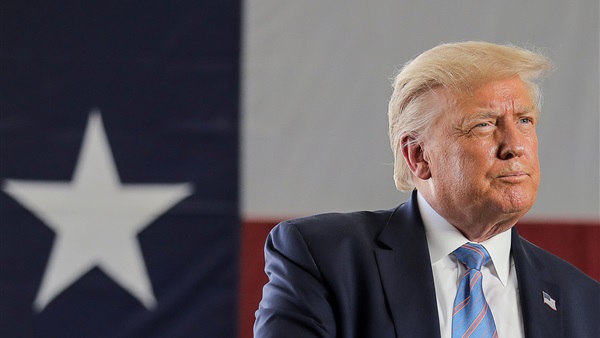Trump's Address at the United Nations: America's Power and Its Implications for the International System
September 23, 202564 ViewsRead Time: 3 minutes

Font Size:
16
In a lengthy speech before the 80th session of the United Nations General Assembly, U.S. President Donald Trump presented his vision for international policy based on an approach that relies on power and unilateral action, in a speech that covered various issues from domestic affairs to international conflicts.
Trump opened his speech by discussing American power, emphasizing that the United States has "the strongest economy and the strongest military," considering that economic growth and industrial prosperity are evidence of the success of his policies. He also affirmed that his country possesses the largest reserves of oil and gas in the world, referring to the ability to achieve energy independence.
On the immigration issue, Trump took a firm stance, threatening illegal immigrants with deportation and announcing the use of the military to combat drug trafficking. He also indicated his intention to address the issue of child trafficking, considering that the solution should start from the countries that export migration rather than the countries of asylum.
On the international front, Trump addressed several hot issues, calling for an end to the war in Gaza and the return of prisoners, while accusing Hamas of rejecting peace offers. He also directed sharp criticisms at Iran, labeling it as the "number one state sponsor of terrorism," affirming his opposition to its possession of nuclear weapons.
Regarding the war in Ukraine, Trump promised to impose tariffs that would quickly end the war, criticizing countries like India and China for purchasing Russian oil, and also criticizing European countries for their double standards regarding Russia.
The speech was not without criticisms of the international organization itself, as Trump described the United Nations as having failed to realize its potential, pointing out that the process of building its headquarters was marred by corruption. He also returned to his discussion of climate change, calling it a "big hoax," justifying his country's withdrawal from the Paris Climate Agreement.
It seems that Trump's speech indicates the continuation of the American policy approach based on national priority and unilateral action in international affairs, with a focus on military and economic power as key tools of foreign policy. This approach places the international system in the challenge of adapting to a vision that differs from the traditional model of multilateral diplomacy.
In the background, the question remains about how the international community will react to this vision, especially in light of urgent global issues that require international cooperation, such as climate change, humanitarian crises, and regional conflicts. The biggest challenge may be finding common ground between this unilateral vision and the requirements of the multilateral international system.
Trump opened his speech by discussing American power, emphasizing that the United States has "the strongest economy and the strongest military," considering that economic growth and industrial prosperity are evidence of the success of his policies. He also affirmed that his country possesses the largest reserves of oil and gas in the world, referring to the ability to achieve energy independence.
On the immigration issue, Trump took a firm stance, threatening illegal immigrants with deportation and announcing the use of the military to combat drug trafficking. He also indicated his intention to address the issue of child trafficking, considering that the solution should start from the countries that export migration rather than the countries of asylum.
On the international front, Trump addressed several hot issues, calling for an end to the war in Gaza and the return of prisoners, while accusing Hamas of rejecting peace offers. He also directed sharp criticisms at Iran, labeling it as the "number one state sponsor of terrorism," affirming his opposition to its possession of nuclear weapons.
Regarding the war in Ukraine, Trump promised to impose tariffs that would quickly end the war, criticizing countries like India and China for purchasing Russian oil, and also criticizing European countries for their double standards regarding Russia.
The speech was not without criticisms of the international organization itself, as Trump described the United Nations as having failed to realize its potential, pointing out that the process of building its headquarters was marred by corruption. He also returned to his discussion of climate change, calling it a "big hoax," justifying his country's withdrawal from the Paris Climate Agreement.
It seems that Trump's speech indicates the continuation of the American policy approach based on national priority and unilateral action in international affairs, with a focus on military and economic power as key tools of foreign policy. This approach places the international system in the challenge of adapting to a vision that differs from the traditional model of multilateral diplomacy.
In the background, the question remains about how the international community will react to this vision, especially in light of urgent global issues that require international cooperation, such as climate change, humanitarian crises, and regional conflicts. The biggest challenge may be finding common ground between this unilateral vision and the requirements of the multilateral international system.